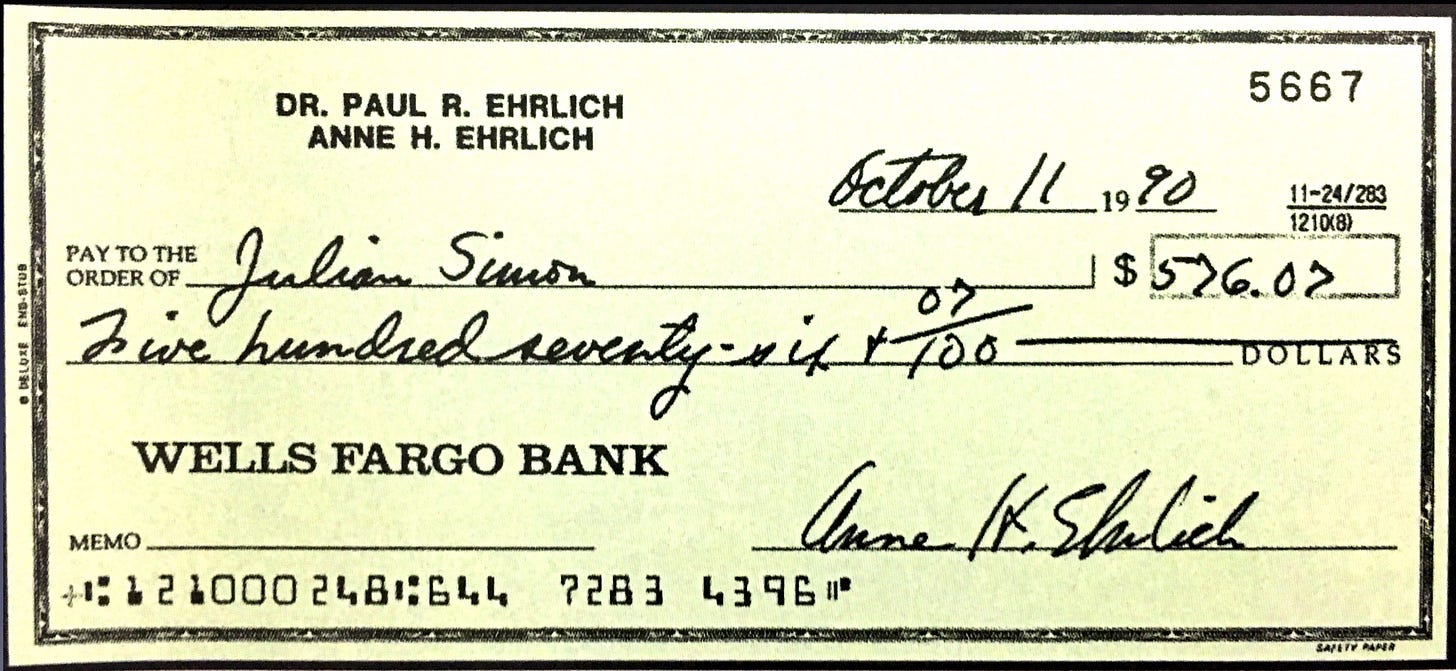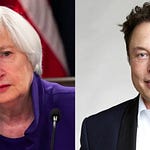Julian Simon won $576.06 on his bet with Paul Ehrlich back in 1990. There is now a new opportunity for Paul Ehrlich and friends to redeem themselves and win $100,000 betting against future abundance. Andrew McAfee is a bestselling author and principal research scientist at MIT. He is the co-founder and co-director of the MIT Initiative on the Digital Economy at the MIT Sloan School of Management. In his recent book, More From Less: The Surprising Story of How We Learned to Prosper Using Fewer Resources–And What Happens Next, McAfee writes, “We’re now generally using less of most resources year after year, even as our economy and population grow.” He refers to this as “dematerialization” but it may be better defined as “intelligizing.” The United States uses less gold, steel, aluminum, copper, stone, cement, and even paper than it did at the start of this century, despite the continued increase in gross domestic product and population. Annual consumption of all but six of the 72 resources tracked by the U.S. Geological Service are “post peak.”
As we move from copper to fiber to wireless, atoms are replaced by knowledge. We don’t want more resources, we want more of what resources can provide. We buy things that do jobs, like drills for the holes they can make.
Caesar Hidalgo observed that products are really knowledge. He noted, “A modern society can amass large amounts of productive knowledge because it distributes bits and pieces of knowledge among its many members. But to make use of it, this knowledge has to be put back together through organizations and markets.”
The genius of Julian Simon is that he shifted the debate from counting atoms to observing prices. Prices contain much more information than quantities. We can never really know the quantity of something. But we can know the price and so can everyone else. We know that the information contained in a price creates incentives to consume, create, and save.
McAfee became so convinced of the trends he discovered that he’s put up $100,000 in Simon-like bets on future abundance. He has offered a group of 14 predictions on LongBets.com that by 2029, the United States will consume less energy and produce less CO2 emissions than it did a decade prior. Crop tonnage will be greater, but we’ll use less total cropland, fertilizer, and water for irrigation in agriculture. We’ll use less iron and steel, aluminum, nickel, copper, gold, rare earth elements, chromium, tin and tungsten—all of which will become more affordable to the world’s average person. We’ll also use less timber and paper.
If you think Simon was just lucky, here’s your opportunity to prove it and make some cash at the same time. Caution: betting against the growth in knowledge is where Ehrlich and his friends failed too.
Excerpt from our forthcoming book, Superabundance, available for pre-order at Amazon.
Gale Pooley is a Senior Fellow at the Discovery Institute and a board member at Human Progress


















Share this post